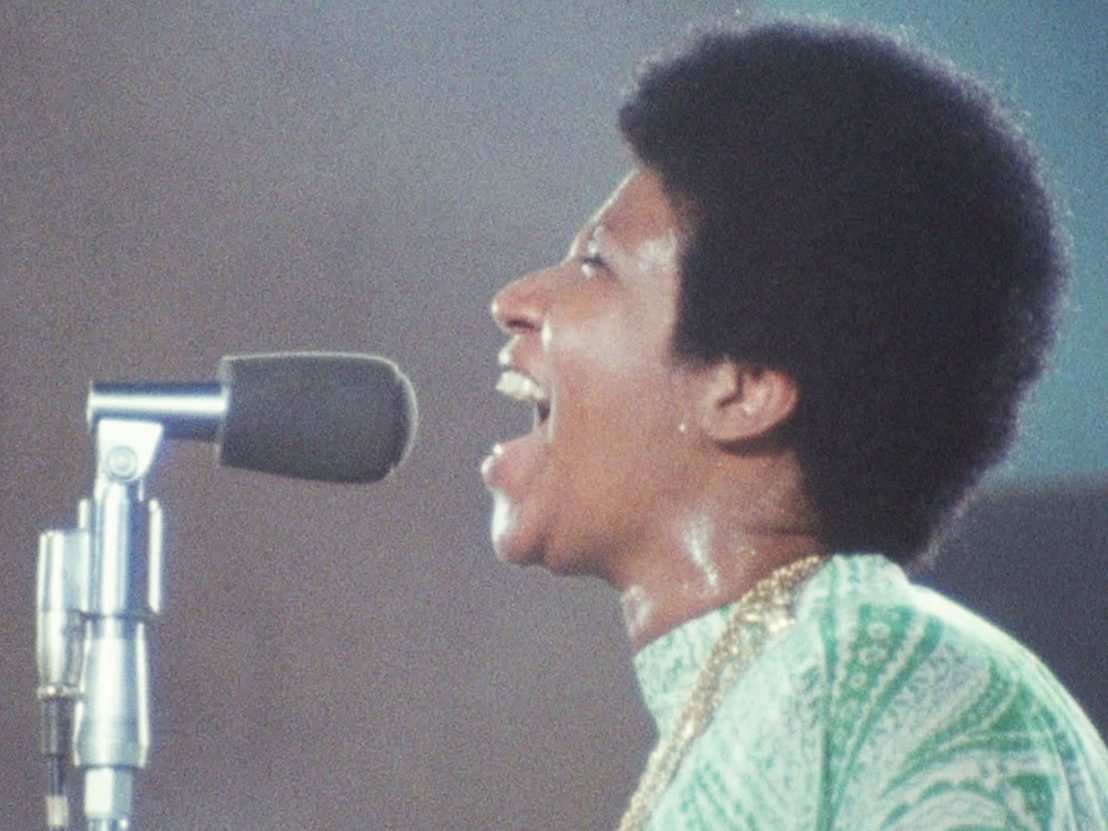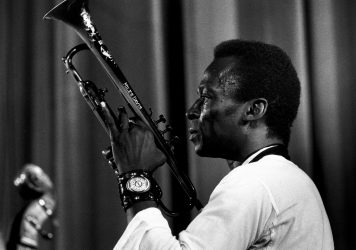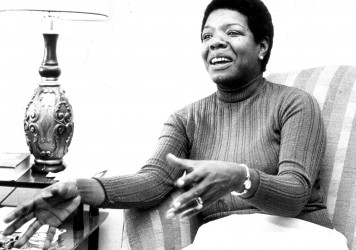
Sydney Pollack’s long-lost concert doc shows the Queen of Soul at the height of her pop fame.
It has, up until now, been the stuff of legend: In 1972, director Sydney Pollack was hired by Warner Bros. to film the recording of Aretha Franklin’s seminal gospel album ‘Amazing Grace’. Because he failed to use clapperboards, the sound synching proved to be beyond the resources of the project, and it was shelved indefinitely.
Before his death in 2008, Pollack handed the footage to former Atlantic Records exec Alan Elliott, who embarked on a reconstruction. In 2015, the resulting film was due to screen at the Telluride Film Festival, but Aretha sued to block the release – ostensibly for reasons due to control over her image, though rumour mills claimed it was a dispute over royalties.
And now, following the Queen of Soul’s passing in 2018, the film of Amazing Grace is here – a vibrant chronicle of the two nights when Franklin, along with the Southern California Gospel Choir, put down one of her best-loved albums in front of a small but passionate audience. The film shows Franklin at the height of her pop fame, returning to her roots as a gospel singer – a homecoming.
Obviously, it’s a terrific concert. Thanks to the original album, and the subsequent release of ‘Amazing Grace: The Complete Recordings’, fans are familiar with Aretha’s rousing performances of standards like ‘Mary Don’t You Weep’, ‘You’ve Got a Friend’ and ‘Old Landmark’.
The film brings a different dimension to them: We see the choir file in, and feel the anticipation in the room, before Franklin’s voice pierces through the atmosphere. We see the game face in Franklin’s expression in a huddle between takes, in a discussion about whether the previous run through veered more towards the key of E or F. We see how much is riding on this performance for the artist: how she’s negotiating the sacred return to the church and the profane responsibilities of stardom.
Indeed, we see, we see, we see – and the pictures contain moments that were not there for the hearing. The album has the moving moment when Aretha’s father, Rev CL Franklin, gave his blessing to the occasion: “[She’s] my daughter, and I wouldn’t be right upstairs if I didn’t appreciate that. But she’s also a stone singer!” The film includes the moment where he wipes the sweat from her brow. And there is plenty of perspiration, such is the totality and generosity of her performance.
The crowd, too, at times becomes animated. “Don’t be bashful when the cameras are coming your way, cause you don’t know if it’s coming back – get up in it, alright!” advises Rev James Cleveland, who serves as a master of ceremonies. Rather than the traditional fandom hysteria of a concert, this plays more like a service, with worshippers occasionally taken by the spirit. It’s a gradual progression, from a young woman in a multi-coloured sweater pouting with glee and affirmation at ‘We Have a Friend in Jesus’, to the whole audience getting up by the time of ‘Climbing Higher Mountains’.
Mick Jagger is spotted at one point, but most of the audience is made up of ordinary black civilians. Even seeing this with a seated, mostly white audience at Berlinale, there came a point where the heat in the room and the sound from the speakers rose to the point where the distance seemed to melt away. Amazing Grace passes one of the key tests of a great live music film – it makes the spectator feel they know what it’s like to be in the room.
As with last year’s release of the lost Orson Welles masterpiece, The Other Side of the Wind, the availability of Amazing Grace restores a missing piece of cinema history. With the gestures it reveals, and the spirituality it captures, it gives us something else – an act of worship, reborn.
Published 18 Feb 2019

By Ed Gibbs
Stanley Nelson’s look at the 20th century jazz icon reveals a troubled soul rarely at peace with himself.

This reveal-all documentary about the late pop icon Whitney Huston from director Kevin Macdonald makes for compelling viewing.

By Ed Gibbs
The African-American icon’s richly textured and often traumatic story is unpacked in this near-definitive documentary for PBS.